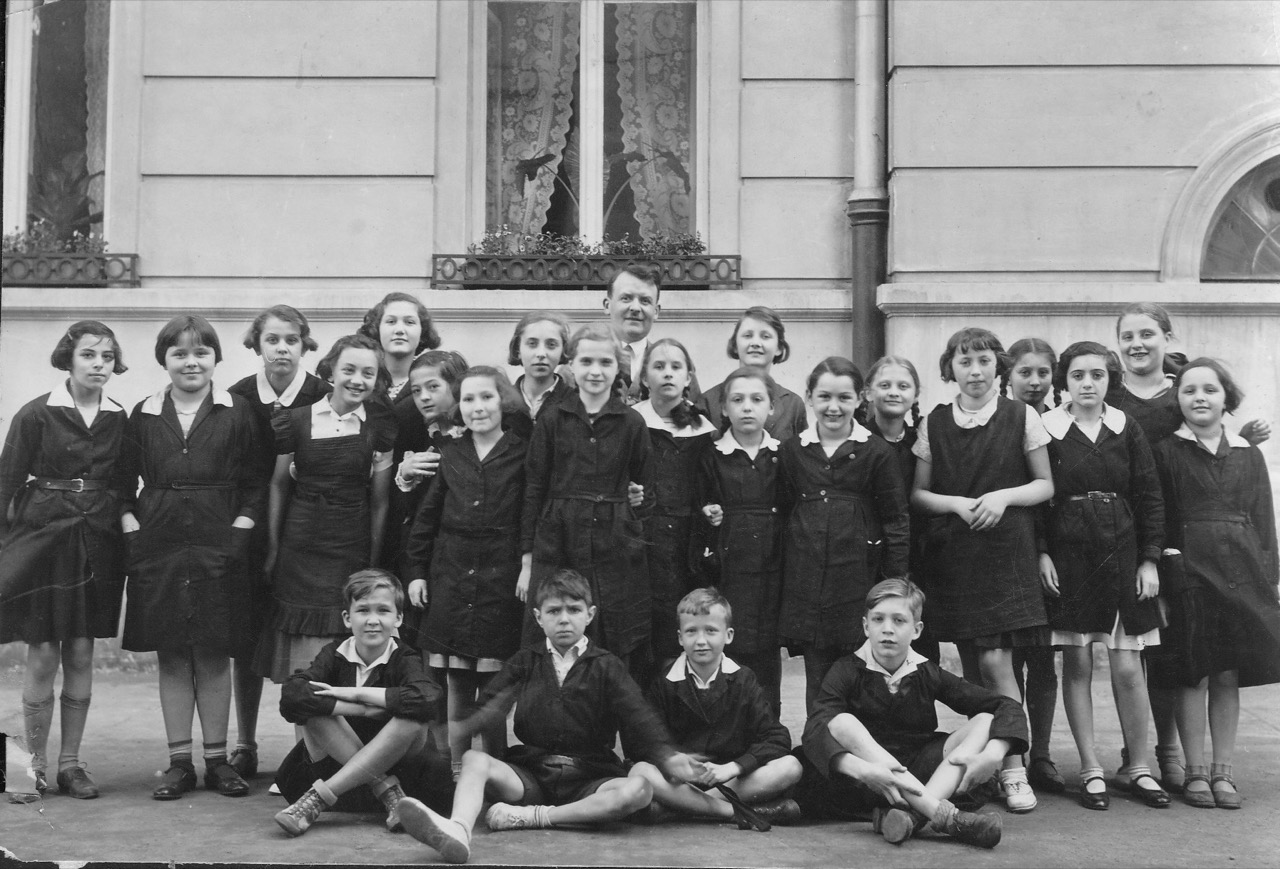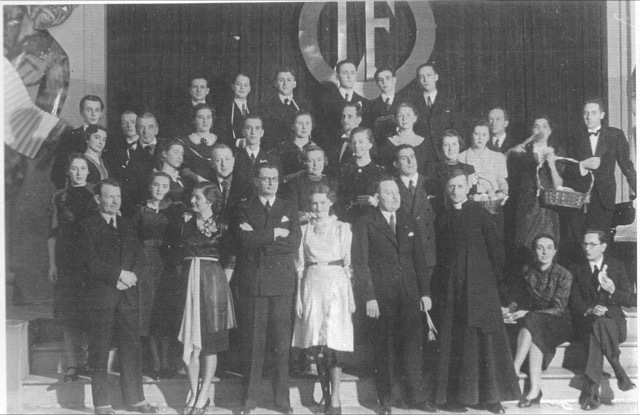

The Lycée Français de Varsovie holds a special position in the Polish educational landscape: it is the only foreign school with a teaching tradition dating
back to the interwar period. The school was founded in 1919 on the initiative
of the French government as a strong symbol of the renewal of French-Polish diplomatic relations following the restoration of Poland’s independence.
When the Lycée français de Varsovie opened its doors in October 1919 for its first school year, a French historian with a passion for Poland, Abel Mansuy, was appointed at its head. Back then, the school only gathered 70 students, who, for the most part, were children
of French military personnel, but also children of European diplomats. Very quickly,
the school opened up to the Polish bourgeoisie, which was attracted by its high quality teaching. Before the war, the French school also welcomed many Jewish students.
In 1932, the school became a state-run high school. The management board was chaired by the French consul, while the Ambassador of France fulfilled the role of honorary president. A principal was appointed headmaster of the school. Abel Mansuy was succeeded by Jean Delobel,
an aggregated teacher at the University.
The school’s curriculum was in compliance with that of French high schools. French language was mandatory, except for Polish language
and history classes. In March 1937, a “Status of the Lycée Français de Varsovie, coeducational establishment” was signed with the Polish authorities. It placed the curriculum under the double supervision of the French and Polish inspectorates, but also allowed students willing to pass the Polish matura in addition to the the French Baccalauréat, to take exams on Polish subjects.

When the Second World War broke out in 1939, Headmaster Jean Delobel was forced
to leave his position to join the French mobilization and the Lycée français de Varsovie closed down. Many students took part together in the Warsaw Uprising, including: Krystyna Felińska, Aline Jaroszewska Wakar, Andrzej Jachymczyk, Andrzej Kotarski,
and Tadeusz Lutoborski. It was only in 1954 that the Lycée français de Varsovie finally reopened its doors.
The Lycée français de Varsovie counts many former students who have, over the course of their lives, actively participated in the development of Poland. We can mention among others: Franciszek Skupieński, a former officer in General Haller’s Blue Army and founder of the Higher School of Life Sciences in Łódź, the Polish film director Wadim Berestowski, Tadeusz Lutoborski, activist and representative of the families of Katyń,
and Natalia Askenazy, the first Polish woman diplomat.